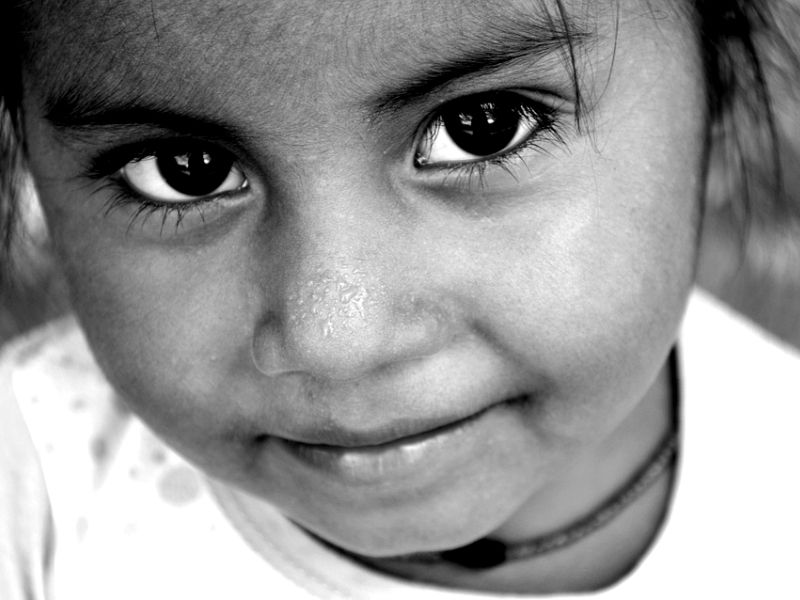Sukanya Nandy
Children’s Eye Health and Safety Month is dedicated to increasing awareness of the importance of proper eye care for kids. As per statistics published by the National Center for Biotechnology Information (NCBI) in 2008, about 1.5 million children are visually impaired . Out of this “1.3 million live in Asia and Africa and 75 percent of all causes are preventable or curable. It is estimated that 200,000 of these children are in India.”
Back in 1999, World Health Organization (WHO) and the International Agency for the Prevention of Blindness (IAPB) came up with a joint global initiative known as Vision 2020. It was set up to, “intensify and accelerate prevention of blindness activities so as to achieve the goal of eliminating avoidable blindness by 2020.” This includes pediatric eye care in India as well.
Dr. Prachi Agashe, Paediatric Ophthamologist and Squint Specialist, Docterz says eye checkups are required from the infant stage and especially for premature babies. “If the baby is less than 35 weeks or the birth weight of the child is less than 2 kg, the eye checkup has to be done with the first 30 days after the child is born. During this time, what a pediatrician ophthalmologist looks for is a blinding disease called Retinopathy of prematurity (ROP),” which is a major threat to vision in baby. Luckily, ROP is treatable, if discovered in the early stages of life. Also known as Tees (30) Din Roshni Ke, it has been scientifically proven to reduce blindness caused by ROP with proper and timely management.
Agashe adds, “Apart from that during the time of infancy or within the first month of life, eye check up is required. Especially if there has been a family history of retinal problems or any family history of eye cancer. In such cases, the child requires an early eye checkup.”
Symptoms of vision problems in children:
– Constant eye rubbing
– Extreme light sensitivity
– Poor focusing
– Abnormal alignment of the eyes
– Chronic redness and tearing
– Frequent blinking
– Closing one eye and seeing with another
– Squinting of the eyes
– Going too close to the television to see the screen
Dr. Uma Mallaiah, senior consultant Opthamologist, Apollo Hospital, Indraprastha, explains that it is mandatory to get an eye checkup every two years. If any eye problem has been detected,the checkup should be done once every year. She further adds, “After 6 months to 8 years, if their is any excessive watering of eyes, any redness or discharge, if the child not focusing or if the child develops a squint, parents should definitely get an eye check up done of their children.”
Diet control:
The mother should start eating right from the time of pregnancy. After the baby is born and ready to eat, parents should provide them with nutritious meals containing fruits and vegetables. “Vitamin A rich foods are required for the normal functioning of the retinal cells. Such foods include green vegetables, carrot, papaya, beet, tomatoes, pulses and fish. However, parents should also take caution as to not overfeed their children with vitamin A rich foods as excess of vitamin A can also have its side effects,” says Agashe.
When it comes to children’s eye health, screen time needs to be controlled, excessive use of mobiles and tablets should be restricted. Spending more time outdoors in natural ambiance light has been proven to be very good for the eyes, especially for children with minus power.
Recommended: Protect your child from digital eye strain
How safe are contact lenses and laser surgery?
“Laser surgery is not all safe for the kids and should definitely not be done, says Agashe. “The reason being children’s eyes are still growing at this time and the growth of eyes will approximately be complete by 15-16 years of age. Until the eye power becomes stable, there is no point in doing laser surgery. Spectacles are the best option in the pediatric age group.”
Contact lenses are not recommended in childhood. After the age of 16, children can opt for occasional contact lens. The use of regular contact lenses may be done only after class 12,” says Mallaiah. On a similar note, Agashe believes contact lens can increase chances of infection. “However, in some special cases contact lens are preferable, when the refractive error between two eyes is significantly different . In such we can consider contact lens.”
























